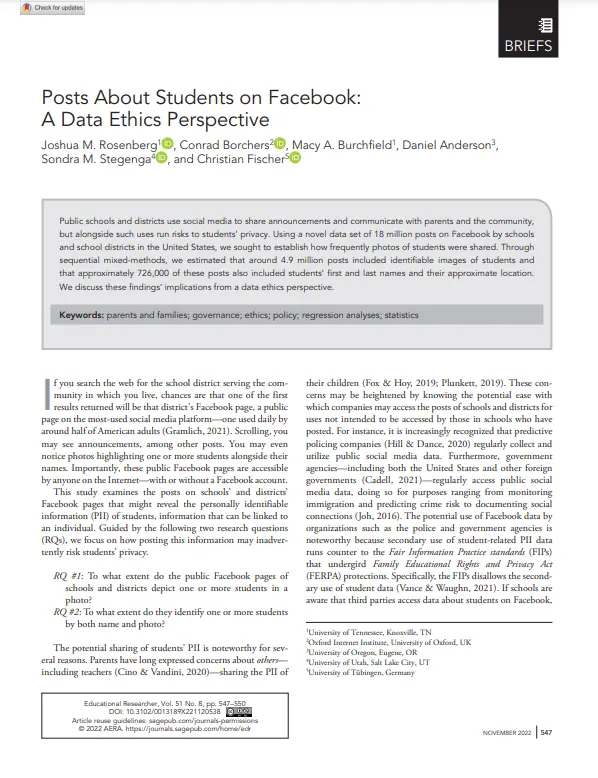Research by Dr. Joshua M. Rosenberg
Rosenberg, J. M., Borchers, C., Burchfield, M. A., Anderson, D., Stegenga, S. M., & Fischer, C. (2022).
Posts about students on Facebook: a data ethics perspective.
Educational researcher, 51(8), 547-550. https://journals.sagepub.com/doi/full/10.3102/0013189X221120538
This study examines the public Facebook pages of schools and districts, which are often among the top search results for community school districts. These pages, accessible to anyone on the Internet, frequently contain posts including photos of students and sometimes even their names. The research aims to address the potential privacy risks associated with sharing personally identifiable information (PII) of students on these pages.Sharing students’ PII is concerning due to parental worries about the privacy of their children’s information beingshared without consent. This concern is exacerbated by the possibility that third-party entities, including companies and government agencies, might access and use this data. Predictive policing companies and government agencies regularly gather public social media data, potentially infringing on student privacy. This is significant as it goes against the Fair
Information Practice standards (FIPs) that uphold protections under the Family Educational Rights and Privacy Act (FERPA). These standards prohibit the secondary use of student data. The study seeks to shed light on the potential implications and awareness of schools regarding third-party access to student data on Facebook.




